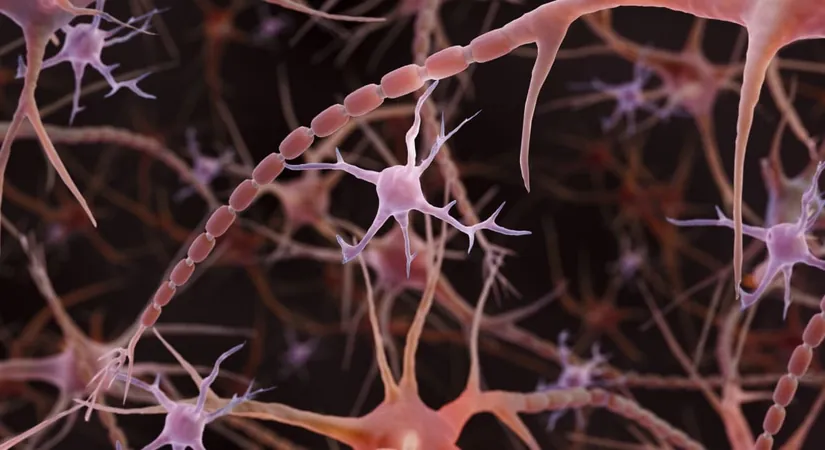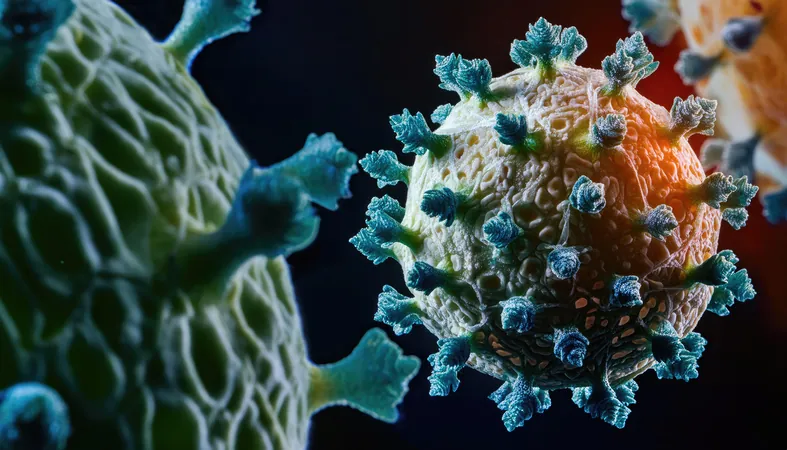
Surprising Facts About Alcohol Use Disorder: Women’s Brains at Higher Risk!
2025-06-12
Author: Sarah
The Hidden Danger: Alcohol's Impact on Women's Brain Health
Did you know that alcohol use disorder could harm the brain's immune system even more severely in women? While the immune system usually protects us from dangers like infections, our brains have their own defense mechanism using specialized cells called microglia. These cells are crucial for brain health, and new research shows alarming differences in how alcohol affects them between men and women.
Women at Higher Risk: What's the Study Revealed?
A groundbreaking study from Yale University, published in Biological Psychiatry, has revealed that women suffering from alcohol use disorder exhibit drastically lower levels of microglia compared to healthy women—a stark contrast not observed in men. With alcohol use disorders climbing among women, this finding sheds light on the considerable risks these women face, such as cognitive decline and brain damage, even when consuming lower alcohol quantities than their male counterparts.
The Unraveling Effects of Chronic Drinking
Dr. Kelly Cosgrove, a leading researcher in the study, explains, "When women drink, their microglia spring into action to check for problems. However, persistent drinking can wear these cells out, leading to serious cognitive issues over time." This highlights how chronic alcohol consumption could lead to permanent changes in women's brain health.
The Study Breakdown: Key Findings
In the study, researchers enrolled both genders with mild to moderate alcohol use disorders and compared them to healthy controls. Using advanced positron emission tomography scans, they discovered that healthy women naturally possess higher microglial levels than men, suggesting a more active brain immune system.
Understanding the Impact: Mood and Functionality
The ramifications of reduced microglia in women are concerning. Findings indicated worsened mood and elevated anxiety levels among women with alcohol use disorder, along with diminished executive functioning—the critical cognitive skills necessary for daily tasks like planning and problem-solving.
Hope on the Horizon: Holistic Approaches to Treatment
With current treatment options largely developed from male-centric studies, this research calls for a reevaluation of therapy approaches for women. Dr. Cosgrove notes the importance of improving lifestyle factors such as sleep, fitness, and nutrition to enhance immune function as part of a comprehensive treatment strategy.
Final Thoughts: The Brain's Resilience
The researchers remain optimistic about the brain's ability to recover. As Dr. Cosgrove asserts, it's crucial to adopt a more holistic treatment viewpoint rather than relying solely on medications. Understanding the unique challenges faced by women with alcohol use disorder could lead to better, more effective interventions.



 Brasil (PT)
Brasil (PT)
 Canada (EN)
Canada (EN)
 Chile (ES)
Chile (ES)
 Česko (CS)
Česko (CS)
 대한민국 (KO)
대한민국 (KO)
 España (ES)
España (ES)
 France (FR)
France (FR)
 Hong Kong (EN)
Hong Kong (EN)
 Italia (IT)
Italia (IT)
 日本 (JA)
日本 (JA)
 Magyarország (HU)
Magyarország (HU)
 Norge (NO)
Norge (NO)
 Polska (PL)
Polska (PL)
 Schweiz (DE)
Schweiz (DE)
 Singapore (EN)
Singapore (EN)
 Sverige (SV)
Sverige (SV)
 Suomi (FI)
Suomi (FI)
 Türkiye (TR)
Türkiye (TR)
 الإمارات العربية المتحدة (AR)
الإمارات العربية المتحدة (AR)